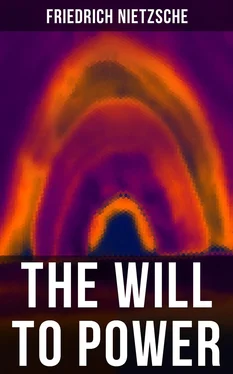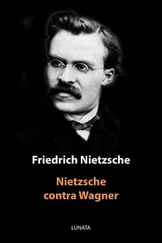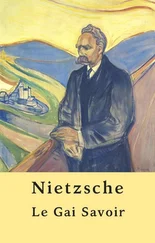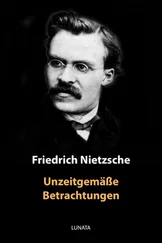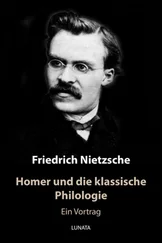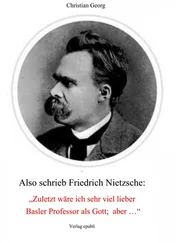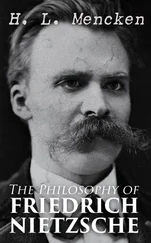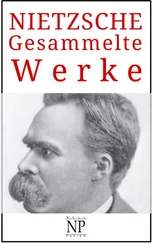66.
"Be simple"—a demand which, when made to us complicated and incomprehensible triers of the heart and reins, is a simple absurdity.... Be natural: but even if we are unnatural—what then?
67.
The means employed in former times in order to arrive at similarly constituted and lasting types, throughout long generations: entailed property and the respect of parents (the origin of the faith in gods and heroes as ancestors).
Now, the subdivision of property belongs to the opposite tendency. The centralisation of an enormous number of, different interests in one soul: which, to that end, must be very strong and mutable.
68.
Why does everything become mummery. —The modern man is lacking in unfailing instinct (instinct being understood here to mean that which is the outcome of a long period of activity in the same occupation on the part of one family of men); the incapability of producing anything perfect, is simply the result of this lack of instinct: one individual alone cannot make up for the schooling his ancestors should have transmitted to him.
What a morality or book of law creates: that deep instinct which renders automatism and perfection possible in life and in work.
But now we have reached the opposite point; yes, we wanted to reach it—the most extreme consciousness, through introspection on the part of man and of history: and thus we are practically most distant from perfection in Being, doing, and willing: our desires—even our will to knowledge—shows how prodigiously decadent we are. We are striving after the very reverse of what strong races and strong natures will have—understanding is an end ....
That Science is possible in the way in which it is practised to-day, proves that all elementary instincts, the instincts which ward off danger and protect life, are no longer active. We no longer save, we are merely spending the capital of our forefathers, even in the way in which we pursue knowledge .
69.
Nihilistic trait .
(a) In the natural sciences ("purposelessness"), causality, mechanism, "conformity to law," an interval, a remnant.
(b) Likewise in politics : the individual lacks the belief in his own right, innocence; falsehood rules supreme, as also the worship of the moment.
(d) Likewise in political economy : the abolition of slavery: the lack of a redeeming class, and of one who justifies —the rise of anarchy. "Education"?
(d) Likewise in history : fatalism, Darwinism; the last attempts at reconciling reason and Godliness fail. Sentimentality in regard to the past: biographies can no longer be endured! (Phenomenalism even here: character regarded as a mask; there are no facts.)
(e) Likewise in Art : romanticism and its counter-stroke (repugnance towards romantic ideals and lies). The latter, morally, as a sense of greatest truthfulness, but pessimistic. Pure "artists" (indifference as to the "subject"). (The psychology of the father-confessor and puritanical psychology—two forms of psychological romanticism: but also their counter-stroke, the attempt to maintain a purely artistic attitude towards "men"—but even in this respect no one dares to make the opposite valuation.)
70.
Against the teaching of the influence of environment and external causes: the power coming from inside is infinitely superior ; much that appears like influence acting from without is merely the subjection of environment to this inner power.
Precisely the same environment may be used and interpreted in opposite ways: there are no facts. A genius is not explained by such theories concerning origins.
71.
" Modernity " regarded in the light of nutrition and digestion.
Sensitiveness is infinitely more acute (beneath moral vestments: the increase of pity), the abundance of different impressions is greater than ever. The cosmopolitanism of articles of diet, of literature, newspapers, forms, tastes, and even landscapes. The speed of this affluence is prestissimo ; impressions are wiped out, and people instinctively guard against assimilating anything or against taking anything seriously and "digesting" it; the result is a weakening of the powers of digestion. There begin a sort of adaptation to this accumulation of impressions. Man unlearns the art of doing, and all he does is to react to stimuli coming from his environment. He spends his strength, partly in the process of assimilation, partly in defending himself, and again partly in responding to stimuli. Profound enfeeblement of spontaneity :—the historian, the critic, the analyst, the interpreter, the observer, the collector, the reader,—all reactive talents,— all science!
Artificial modification of one's own nature in order to make it resemble a "mirror"; one is interested, but only epidermally: this is systematic coolness, equilibrium, a steady low temperature, just beneath the thin surface on which warmth, movement, "storm," and undulations play.
Opposition of external mobility to a certain dead heaviness and fatigue .
72.
Where must our modern world be classed—under exhaustion or under increasing strength? Its multiformity and lack of repose are brought about by the highest form of consciousness.
73.
Overwork, curiosity and sympathy—our modern vices.
74.
A contribution to the characterisation of " Modernity. "—Exaggerated development of intermediate forms; the decay of types; the break-up of tradition, schools; the predominance of the instincts (philosophically prepared: the unconscious has the greater value) after the appearance of the enfeeblement of will power and of the will to an end and to the means thereto.
75.
A capable artisan or scholar cuts a good figure if he have his pride in his art, and looks pleasantly and contentedly upon life. On the other hand, there is no sight more wretched than that of a cobbler or a schoolmaster who, with the air of a martyr, gives one to understand that he was really born for something better. There is nothing better than what is good! and that is: to have a certain kind of capacity and to use it. This is virtù in the Italian style of the Renaissance.
Nowadays, when the state has a nonsensically oversized belly, in all fields and branches of work there are "representatives" over and above the real workman: for instance, in addition to the scholars, there are the journalists; in addition to the suffering masses, there is a crowd of jabbering and bragging ne'er-do-wells who "represent" that suffering—not to speak of the professional politicians who, though quite satisfied with their lot, stand up in Parliament and, with strong lungs, "represent" grievances. Our modern life is extremely expensive, thanks to the host of middlemen that infest it; whereas in the city of antiquity, and in many a city of Spain and Italy to-day, where there is an echo of the ancient spirit, the man himself comes forward and will have nothing to do with a representative or an intermediary in the modern style—except perhaps to kick him hence!
76.
The pre-eminence of the merchant and the middleman, even in the most intellectual spheres: the journalist, the "representative," the historian (as an intermediary between the past and the present), the exotic and cosmopolitan, the middleman between natural science and philosophy, the semi-theologians.
77.
The men I have regarded with the most loathing, heretofore, are the parasites of intellect: they are to be found everywhere, already, in our modern Europe, and as a matter of fact their conscience is as light as it possibly can be. They may be a little turbid, and savour somewhat of Pessimism, but in the main they are voracious, dirty, dirtying, stealthy, insinuating, light-fingered gentry, scabby—and as innocent as all small sinners and microbes are. They live at the expense of those who have intellect and who distribute it liberally: they know that it is peculiar to the rich mind to live in a disinterested fashion, without taking too much petty thought for the morrow, and to distribute its wealth prodigally. For intellect is a bad domestic economist, and pays no heed whatever to the fact that everything lives on it and devours it.
Читать дальше
